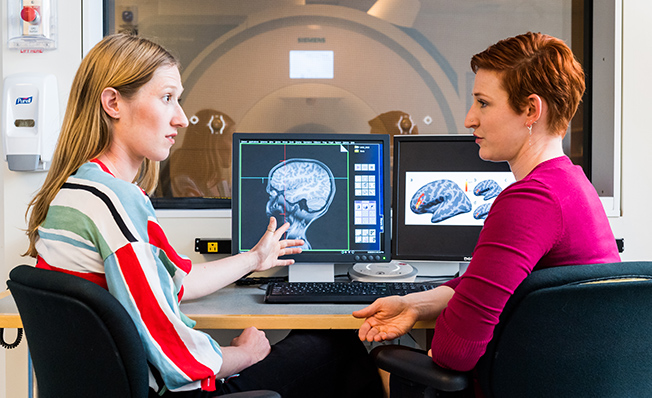Support the McGovern Institute

I hope my research leads to a better understanding of the neural architecture underlying schizophrenia and helps us as a society to accept and understand special populations.
Tamar Regev, Poitras Ctr Postdoctoral Fellow
Why Support Our Goals
Understanding the brain is among science’s great frontiers and key to developing new cures for some of our most intractable diseases. As one of the world’s top brain research centers, the McGovern Institute is leading the way to a new era of knowledge. We can only make progress with the support of those who share our goal. The impact of philanthropic support for neuroscience cannot be overstated—it is central to our mission of understanding the brain in health and disease.
Neuropsychiatric disorders are a leading contributor of years lost to disability amongst diseases/disorders.
SOURCE: NIMHGovernment support for research fell below 50%, compared to other sources, for the first time in 2013.
SOURCE: SCIENCE5 in 20
5 of the top 20 disorders contributing to the global burden of disease are mental illnesses.
SOURCE: Vigo et al.$65
Cost of a CRISPR plasmid, a circle of DNA carrying the gene for cas9-mediated editing.
SOURCE: ADDGENE$16,000
Cost of single cell-sequencing kit that preps cells for gene expression profiling.
Our Supporters
Many individuals, families, corporations, and foundations make up the McGovern Institute’s diverse community of giving.
Our supporters include families whose lives have been touched by devastating brain disorders and individuals who find the enduring mysteries of the brain worthy of curiosity-driven science. The McGovern Institute values all philanthropic investments, big or small; together, all gifts catalyze novel research and support fellowships for tomorrow’s brightest neuroscientists.
Funding Opportunities

Psychiatric Disease
This fund supports research on depression, schizophrenia, anxiety disorders, and other psychiatric conditions.
This fund supports research on autism, dyslexia, and other developmental disorders.
This discretionary fund allows the Institute to more rapidly target funds to new opportunities as they arise.
This fund supports research on Parkinson’s disease, Alzheimer’s disease, brain injury, and other neurological conditions.
This fund supports research on Parkinson’s disease, Alzheimer’s disease, brain injury, and other neurological conditions.
Research fellowships provide stipend support for young scientists at the critical early stages of their research careers.
This fund supports research on the biological underpinnings of addiction.
For any questions about giving, please contact Kara Flyg.

